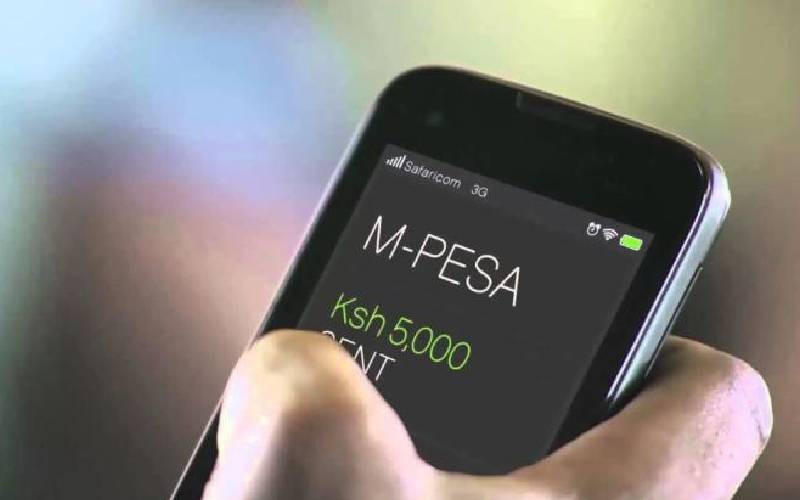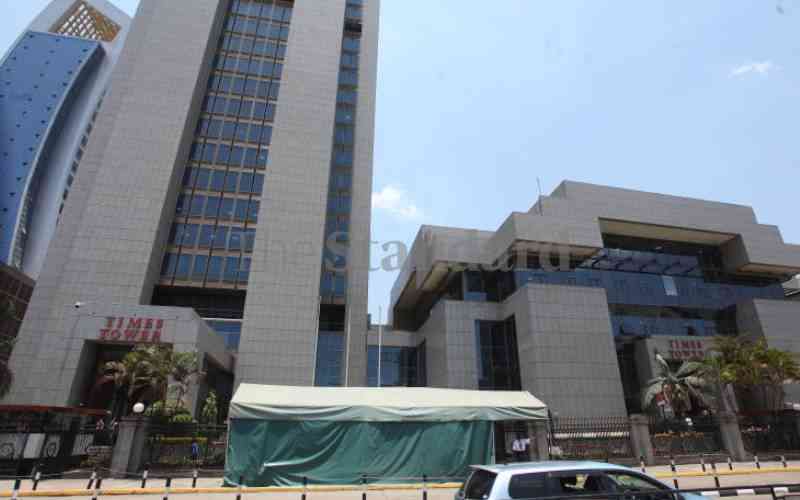
The National Treasury says it will integrate the Kenya Revenue Authority (KRA) information technology systems with those of telecommunication companies such as Safaricom and Airtel to monitor customers' mobile money transactions and nab tax cheats.
This is part of President William Ruto's new grand plan to broaden the country's tax base by catching tax evaders and raising revenue to enable him to deliver on his raft of rosy pledges over the next financial year.
The plan will see KRA move to seal all revenue leaks and boost State coffers by widening the tax bracket to enable the new administration to wean itself off reliance on public debt and implement its campaign manifesto.
As part of the fresh revenue-raising plan, Treasury will also seek to introduce a raft of new levies under a new tax policy. "As part of the economic turnaround plan, the Government will scale up revenue collection efforts by the KRA to Sh3.0 trillion in the Financial Year 2023/24 and Sh4.0 trillion over the medium term," says Treasury in the 2023 Budget Policy Statement (BPS).
"In order to achieve this, the government will undertake a combination of both tax administration and tax policy reforms." The BPS - the first to be prepared by the Kenya Kwanza government since it took office last year - sets out the Ruto administration's spending priorities in social and economic programmes.
The new administration says in the document it plans to stimulate and sustain economic activity, mitigate the adverse impact of the lingering Covid-19 pandemic on the economy and re-position the Kenyan economy "on a sustainable and inclusive growth trajectory."
"This will be achieved through the implementation of programmes supporting economic recovery and additional priority programmes of the Government," says Treasury. "Special focus will be placed on increased employment, more equitable distribution of income, social security while also expanding the tax revenue base, and increased foreign exchange earnings."
- Myth or truth? The okra water magic
Keep Reading
Treasury reckons the targeted additional taxes will help President Ruto implement the ambitious programme to turn around the battered economy, bring down the cost of living, boost jobs, and incomes and enhance food security as part of his campaign promises.
The BPS says the Ruto government will prioritise billions of investments in uplifting agriculture, micro, small and medium enterprises (MSME), housing and settlement, healthcare, ICT and the creative industry.
"To make these programmes feasible, the Government will implement strategic interventions under Infrastructure, Manufacturing, Blue Economy, the Services Economy, Environment and Climate Change, Education and Training, Women Agenda, Social Protection, Sports, Culture and Arts. and Governance," says Treasury in the BPS.
But as part of the new Kenya Kwanza administration's efforts to stabilise its finances and build a financial war chest for these programmes, the Treasury believes the taxman's ability to collect transactional data on the popular mobile money services like M-Pesa from all traders, individuals, and companies in the country will help tighten the noose on tax cheats.
Such unfettered access, Treasury believes, will be able to assist KRA spot red flags and build evidence that can be used to levy higher assessments against tax cheats.
"KRA will implement...the...integration of KRA tax system with the telecommunication companies," say the BPS.

The move is, however, likely to set up the new administration for fresh legal battles from data privacy lobbyists. Yet, it is easy to see why Treasury is tempted to bank on access to digital financial transactions to snoop out tax cheats and grow collections.
M-Pesa for instance, accounts for about 99.9 per cent of the value of mobile money transactions, underlining the entrenchment of the platform in Kenya's economy.
In the year to March 2022, payments of Sh1.4 trillion were made through the Lipa na M-Pesa platform and a total of Sh9.78 trillion was paid through M-Pesa, entrenching the popularity of the platform as a means of commerce as opposed to paying via cash.
The Treasury in earlier reports warned that the collapse of the M-Pesa service would cause widespread disruption in the economy. This means M-Pesa is classified as a systemic risk to the country's economy, underlining its crucial role.
According to Central Bank of Kenya (CBK) governor Patrick Njoroge, 96 per cent of transactions happen outside bank branches in Kenya underlining the entrenchment of digital transactions.
Many lenders have rolled out digital banking platforms, which have cut the need for customers to visit brick-and-mortar outlets for services such as opening accounts, balance inquiries, and settling bills.
Over 400,000 businesses currently use Safaricom's Lipa na M-Pesa service.
The National Treasury has also revealed the KRA will also seek to raise value-added tax (VAT) collections by fully rolling out a new electronic Tax Invoice Management System (eTIMS).
The new system collates data from all traders, individuals and companies in the country in near real-time, tightening the noose on tax cheats.
Armed with new electronic invoicing and reporting tools from the new eTIMS, KRA will be able to collect information without waiting for taxpayers to file, even at the point of a commercial transaction to make its own assessment of the tax due.
KRA will also squeeze corporates to ensure they all pay the Corporate Income Tax due to the State.
At the same time, small businesses will be brought into the tax bracket under the Treasury's new plan.
This is expected to see the return of the turnover tax which previously flopped as most traders failed to make revenue disclosures. Any new taxes on informal traders are however expected to saddle small traders, who have raised concerns about deteriorating business conditions, with additional operating costs.
KRA will also come under pressure to ensure all landlords pay rental income tax by mapping all rental properties in the country. It will also tighten Customs and Border Control to minimise tax evasion.
Ruto plans to spend Sh3.64 trillion in the next financial year - the country's biggest budget so far.
The president's first budget to draw up and implement since taking office is 10 per cent higher than the Sh3.3 trillion budget for the current financial year to June 2023, crafted in the last days of the Jubilee administration and being implemented by Ruto's government.
The new budget plan reflects the populist approach Ruto has taken to budgeting - spend big and bank on those investments to pay off in a stronger economy, higher wages and reduced poverty.
Ruto will be banking on increased tax collections by KRA to reduce the need for borrowing and bridge the budget deficit estimated at Sh695.2 billion during the year.
Treasury, however, admits the new administration is faced with risks in the medium term due to volatile international commodity prices, tighter external financing conditions, elevated inflation and continued drought.
 The Standard Group Plc is a multi-media organization with investments in media platforms spanning newspaper print
operations, television, radio broadcasting, digital and online services. The Standard Group is recognized as a
leading multi-media house in Kenya with a key influence in matters of national and international interest.
The Standard Group Plc is a multi-media organization with investments in media platforms spanning newspaper print
operations, television, radio broadcasting, digital and online services. The Standard Group is recognized as a
leading multi-media house in Kenya with a key influence in matters of national and international interest.










